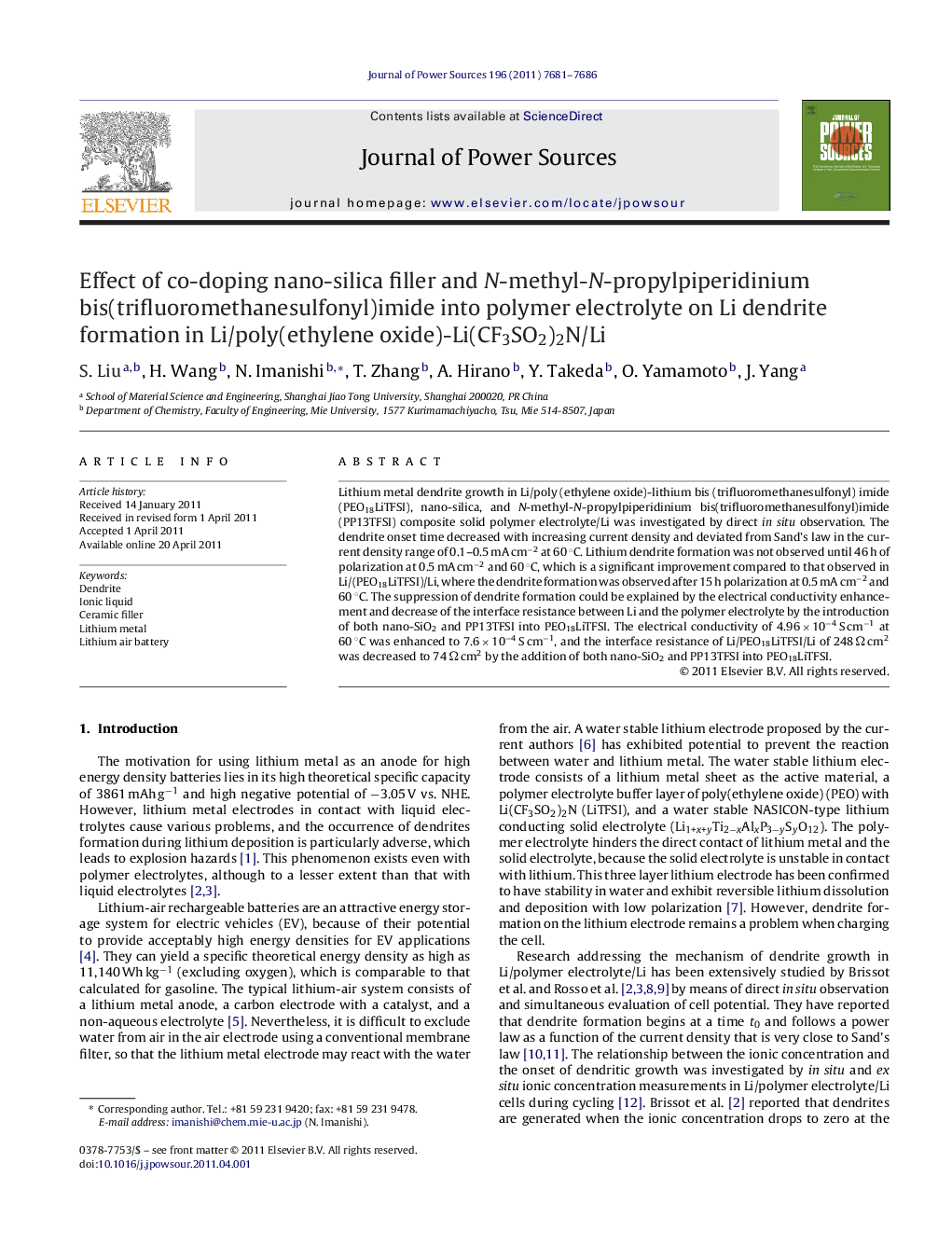| Article ID | Journal | Published Year | Pages | File Type |
|---|---|---|---|---|
| 1293389 | Journal of Power Sources | 2011 | 6 Pages |
Lithium metal dendrite growth in Li/poly (ethylene oxide)-lithium bis (trifluoromethanesulfonyl) imide (PEO18LiTFSI), nano-silica, and N-methyl-N-propylpiperidinium bis(trifluoromethanesulfonyl)imide (PP13TFSI) composite solid polymer electrolyte/Li was investigated by direct in situ observation. The dendrite onset time decreased with increasing current density and deviated from Sand's law in the current density range of 0.1–0.5 mA cm−2 at 60 °C. Lithium dendrite formation was not observed until 46 h of polarization at 0.5 mA cm−2 and 60 °C, which is a significant improvement compared to that observed in Li/(PEO18LiTFSI)/Li, where the dendrite formation was observed after 15 h polarization at 0.5 mA cm−2 and 60 °C. The suppression of dendrite formation could be explained by the electrical conductivity enhancement and decrease of the interface resistance between Li and the polymer electrolyte by the introduction of both nano-SiO2 and PP13TFSI into PEO18LiTFSI. The electrical conductivity of 4.96 × 10−4 S cm−1 at 60 °C was enhanced to 7.6 × 10−4 S cm−1, and the interface resistance of Li/PEO18LiTFSI/Li of 248 Ω cm2 was decreased to 74 Ω cm2 by the addition of both nano-SiO2 and PP13TFSI into PEO18LiTFSI.
► New composite electrolyte of nano-SiO2, PP13TFSI and PEO18LiTFSI was prepared. ► Lithium anode with the composite electrolyte shows good cycling performance. ► Li/composite electrolyte shows strong prevention effect for dendrite formation.
